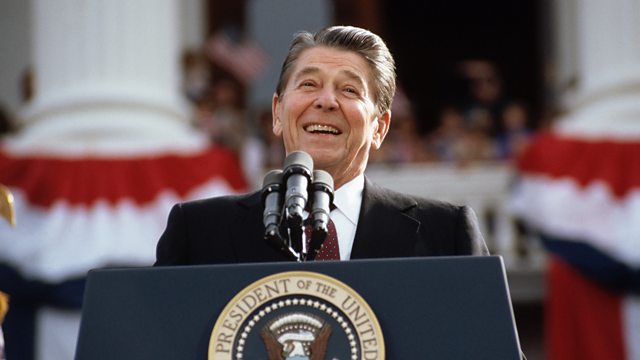A Walk on the Supply Side
What is 'supply-side' economics, and what do its origins in the battles of the 1970s and 1980s tell us about the fate of Liz Truss's plans for Britain? Duncan Weldon investigates.
In September, the UK's new government took power heralding a ‘supply-side’ revolution.
But what is supply-side economics, and what do its origins in the battles of the 1970s and 1980s tell us about the rapid rise and fall of ‘Trussonomics’, and where we go from here?
The economics writer Duncan Weldon talks to Arthur Laffer about his campaign for tax rate reductions in the America of the 1970s - all the way from a dinner in Washington with Donald Rumsfeld in 1974, through a populist campaign to cut California property taxes in 1978, through to his work with President Reagan in the 1980s.
Duncan hears from the historian Rick Perlstein about why he assesses the 'Reagan tax cuts' to have failed - and what he makes of the fact that, rather surprisingly, he is reportedly Liz Truss' favourite historian. And the economist Patrick Minford, whose ideas influenced Truss, reflects on how his thinking had earlier influenced the Thatcher project. Can Thatcherism be recreated, and was it ever quite the same as Reaganomics?
Duncan also speaks to Gemma Tetlow of the Insitute for Government, Geoff Tily of the Trades Union Congress and Mark Littlewood of the Institute of Economic Affairs about the current viability of supply-side economics, whether in terms of tax cuts, deregulation or interventions on skills and infrastructure - and asks what all of this has to offer to the effort to revive the UK's sluggish rate of growth, now that the Sunak government has jettisoned Truss's plans.
Producer: Phil Tinline
Last on
Broadcasts
- Tue 1 Nov 2022 11:00±«Óãtv Radio 4
- Mon 7 Nov 2022 21:00±«Óãtv Radio 4

